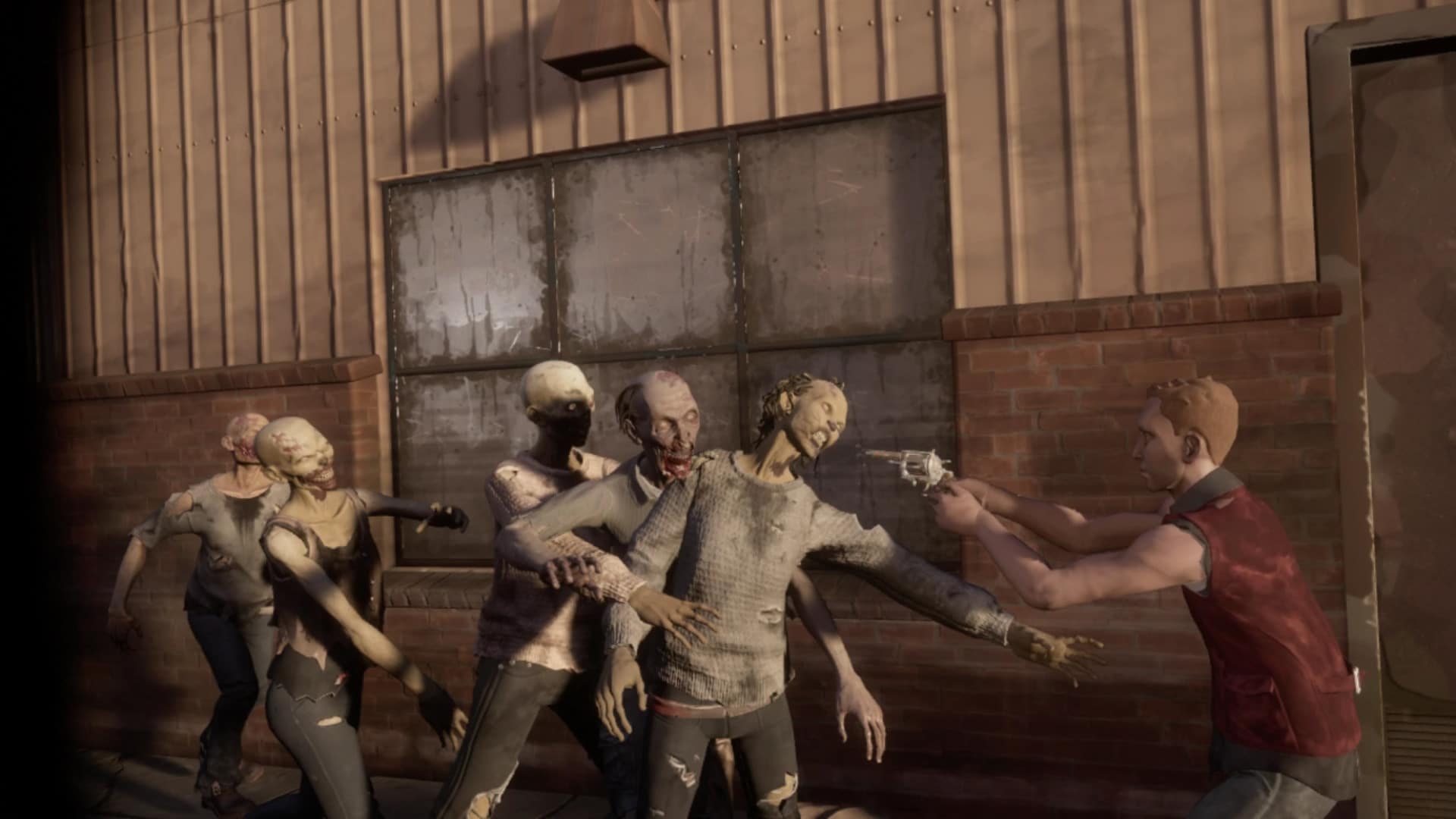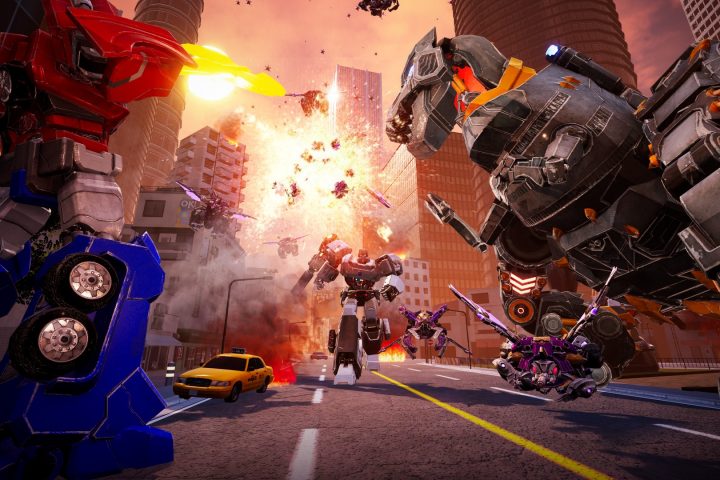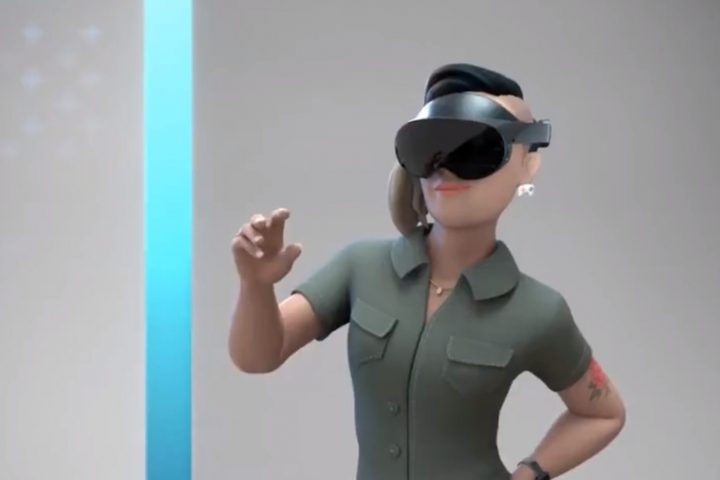“We are the walking dead,” Rick Grimes somewhat insanely proclaims at one of the lower points in what can be best described as a difficult life.
Note: This post contains spoilers for The Walking Dead: Saints & Sinners
The protagonist of The Walking Dead is getting to the heart of Robert Kirkman’s groundbreaking comic book series here, as if the enormously unsubtle metaphor hadn’t already bashed, impaled and beaten its way into your mind yet. The group of survivors depicted in the original series (not any of the various TV and videogame iterations and spin-offs) have, at this point, lied, stolen and murdered to survive and yet still face a seemingly inevitable demise.
Forgive the hyperbolic movie tagline, but it’s true that, to say alive, they’ve had to sacrifice their humanity. For me, this is perhaps the most interesting translation to be found in Skydance Interactive’s The Walking Dead: Saints & Sinners, even if it is, like Rick’s outcry, a little ham-fisted.
Indeed, the best zombie stories aren’t the ones concerned solely with the head-stabbing, brain-chomping gore (though that’s still very much welcome and, in Saints & Sinners’ case, a real highlight). But it’s the humans you have to watch out for, especially surviving on the shaky foundations of post-apocalyptic New Orleans, where two rival factions fight for supremacy.
As you’d expect from an entry in this long-running series, Saints & Sinners wants to investigate the murky area between survival and morality, backed up by an ambitious system that lets you choose to align with certain sides or, if you’re particularly vicious, kill whoever you want. Though often clumsy (and, going further, quite regularly broken), it creates some of the game’s most memorable moments.
If you’ve spent much time with the game, you’ll know the first and most striking scenario involved. Tasked with infiltrating a Tower (authoritarian bad guys) base, one member asks you to rescue his brother, who has snuck off to The Reclaimed (more savage, slightly sympathetic, but still probably bad guys). You arrive at their camp to find the young brother imprisoned, two members preparing to kill him – retribution for the death of one’s daughter.
Hearing The Reclaimed’s reasoning out, I do what I consider the only decent thing in the situation – I stab the brother in the eye socket with a broken bottle to prove my loyalty (well I wasn’t going to waste a bullet, was I?). But, upon leading an assault into Tower territory, I discover his room and a letter of confession. Wracked with guilt over the death the girl, the well-meaning brother had intended to defect to the other side, stealing supplies as way of some small redemption. That hadn’t exactly worked out for him, had it?
In a normal game, sure, I’d probably have a few regrets at this point. In VR, I’m suddenly having flashbacks to his final moments; posture, expression, unease and then a deadly silence, all weighing down in my stomach. It’s a little too forced and fast of a moment to make a deeper impression than that, but it speaks to a deeper power hiding within VR development.
Perhaps more interesting is when the game doesn’t shove you into such situations, but lets you come to similar conclusions on your own. In the penultimate level the leader of the Reclaimed meets me one-on-one with a proposition. Not liking what I hear — and the existential threat he poses — I end our brief meeting by pulling out my pistol and shooting him in the head — making the same kind of decision the cast of the comics has arrived at, entirely from my own train of thought. When the leader of The Tower meets me outside armed to teeth, a hatch an explosive plot to do the same thing (no one thought to ask why I was dropping a propane tank by their feet).
It’s a freedom that also causes the game to cave in on itself. Not since Skyrim have I seen so many NPCs so confused about what they should be doing but, as with Bethesda’s beloved RPG, it gets away with it thanks to ambition and, less intentionally, the hilarity of what can ensue.
Ultimately, Saints & Sinners only scratches the surface of these fascinating ideas, but making such an impact with even these limited scenarios suggests there’s something much deeper to mine from VR than stabbing zombies with a screwdriver (though that won’t get old, either). The heft of movement in the act of murder, the palpable desperation in the air when you kill a fellow human, and the deep-seated uncomfort that comes from doing so all feel magnified when paired with the physicality and immersion of VR. Dangerous ground to tread, perhaps, but I’m fascinated to see where it leads us.
The post Forget Zombies: It’s Humans That Make The Walking Dead VR Truly Memorable appeared first on UploadVR.
Source: Forget Zombies: It’s Humans That Make The Walking Dead VR Truly Memorable




